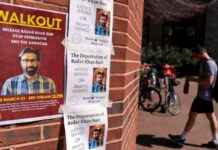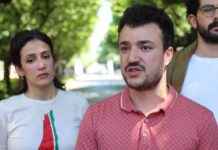Mayor Eric Adams of New York City made a significant announcement on Wednesday that shook up the typical school schedule just a week before Christmas. In a surprising move, Mayor Adams decided to cancel the one-day school week that would have taken place right before the start of the Christmas vacation period, leaving students with an extended break from December 24 to January 2.
For most years, this schedule adjustment would not have raised any eyebrows. However, this year presented a unique situation with Christmas Eve falling on a Tuesday. This meant that students would have only attended school for a single day after the weekend before beginning their holiday break, leading to logistical challenges for families with early travel plans and disrupting the flow of the academic calendar.
The decision to cancel the one-day school week stemmed from a heartfelt plea made by a 12-year-old boy from Brooklyn who took matters into his own hands. The young student, identified as Isaac, initiated a Change.org petition addressed to the school administration and the student body, calling for a change in the scheduling of the school year. Isaac proposed to swap the class day scheduled for December 23 with a day at the end of the school year, effectively making the last day of school on Friday, June 27.
Isaac’s petition quickly gained traction and support, amassing over 22,000 signatures by the time of Mayor Adams’ announcement. In his petition statement, Isaac shared his concerns about the impracticality of having a one-day school week right before a major holiday break. He pointed out that attendance would likely be low, families with travel plans would face disruptions, and the overall educational experience for students would be compromised due to the anticipated absenteeism and lack of meaningful activities.
Acknowledging the validity of the concerns raised by Isaac and the broader student community, Mayor Adams emphasized that the state’s requirement of a 180-day school year would still be met despite the altered schedule. In his official statement, Mayor Adams expressed his commitment to ensuring that students receive a quality education while also prioritizing the well-being and enjoyment of the school community.
“Winter break this school year will now start one day early, on December 23rd, so that everyone can enjoy the extra time with family and friends,” Mayor Adams declared. “We know that a one-day week would not be well attended — so this just makes good sense. Our children’s education will not be short-changed, so we will still maintain the required 180 days of instruction. I want to thank the teachers, parents, and our labor partners at the UFT who helped us make this good sense decision.”
With this decision, Mayor Adams not only demonstrated responsiveness to the concerns of students and families but also showcased a willingness to adapt and prioritize the well-being of the educational community. By listening to the voices of those directly affected by the scheduling issue and taking swift action, Mayor Adams exemplified effective leadership and a commitment to fostering a supportive and inclusive school environment.
In conclusion, Mayor Adams’ decision to cancel the one-day school week before Christmas vacation serves as a testament to the power of youth advocacy and the importance of listening to the needs of the community. This episode highlights the positive impact that student voices can have on shaping educational policies and practices, ultimately leading to a more responsive and student-centered approach to school governance.
































